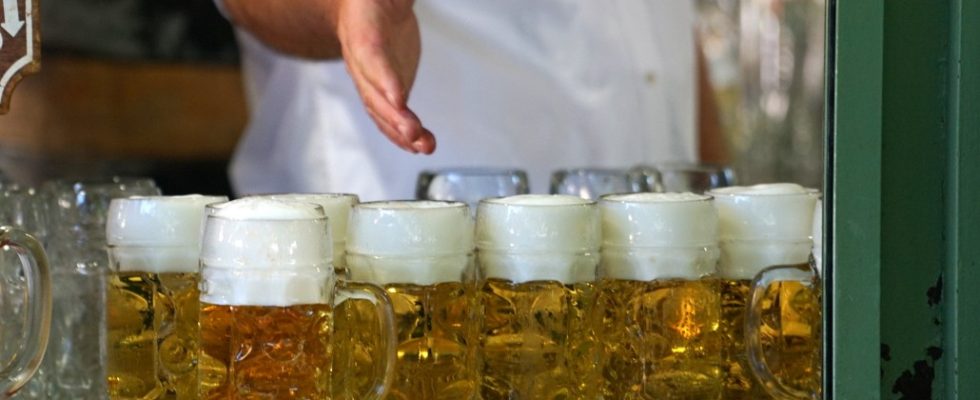Light beer from Bavaria is now even conquering pilsner strongholds such as Hamburg or Berlin. In the refrigerators of the Spätis there you will find heaps of beers from Bavarian towns such as Munich, Scheyern, Andechs, Starnberg or Tegernsee. All the motifs of longing can be seen on the labels of the typically brown, mostly bulbous bottles: the Bavarian Alps, historic monasteries, monks, mountain lakes, the white-blue sky. According to the marketing message, anyone who buys light beer from Bavaria is buying a piece of home.
Regional breweries in particular benefit from this clean image, say analysts at the Rheingold market research institute. The places of longing embody a feeling of freedom and authenticity that gives customers a taste for it, paired with a certain sweetness of the light beer. It tastes less tart and milder than Pils, which has stagnated at just under 50 percent market share for several years. On the other hand, nationwide sales of light beer have almost doubled in the past ten years. The market share here was 8.9 percent at the end of 2021, which already makes it second place in the ranking of all beer types.
But be careful, the light beer can sometimes develop a bland aftertaste. Because sometimes the question arises: Is Bavaria really in it where Bavaria is on it?
The debate was sparked these days by a beer called “Benediktiner Hell”, which sounds like Bavaria but comes from Hesse. The Bitburger brewing group, which cooperates with the Benedictine monks from the Ettal monastery in Upper Bavaria, advertises the product with the Alps and the silhouette of the monastery, in short: with Bavarian feelings of home. However, the beers under the “Benedictine” label are not brewed in the foothills of the Alps, but in the Hessian Lich.
Ettal Abbey in Upper Bavaria, taken from a hiking trail.
(Photo: Lino Mirgeler/dpa)
The Center for Combating Unfair Competition, popularly known as the “Competition Center”, now suspects that customers have been deceived. She has sued Benediktiner Weissbräu GmbH for injunctive relief at the Munich District Court. According to the court, she specifically accuses the brewery of “misleadingly designed product equipment”. The advertising with the Bavarian Alps and the monastery gives the impression that it is a beer that is produced in Bavaria. The consumer is being misled.
Light beer is also increasingly being brewed outside of Bavaria
So is it a scam? Is a Bavarian sense of home suggested here in order to boost sales? The Bitburger brewing group makes no secret of the fact that most of the “Benedictine beers” are brewed in Hesse. It says so on the label too. The brewery is defending itself against the allegations. She takes the view that the references to the town of Ettal are permissible because that is where the company’s headquarters, Benediktiner Weissbräu GmbH, are located. Cooperations are also completely normal in the industry, it is said. The beer is brewed contractually according to the monks’ original recipe. “The monks personally monitor compliance with the Benedictine principles,” it said in an earlier message.
The judges in Munich will not make a decision until July 14th. But no matter what the verdict is: Bavarian traditionalists and homesteaders have to accept that light beer is being served more and more often outside of the Free State. The rapid rise of the beer type has aroused desires in many places. Cooperation between Bavarian and foreign breweries is increasing, as are imitations. Veltins from Sauerland, for example, brews its own light beer called Pülleken.
However, the light beers that are not brewed in Bavaria can be exposed. In 2001, the Bavarian Brewers’ Association ensured that “Bavarian beer” was protected as a “protected geographical indication” in the European Union, like Black Forest ham or Parmigiano Reggiano. “We are for clarity on the label and truth for the consumer,” says managing director Walter König. You can recognize the Bavarian beer by a blue and yellow seal on the label. The “Benediktiner Hell” is not allowed to carry this.

